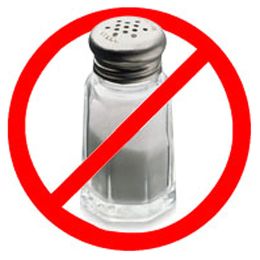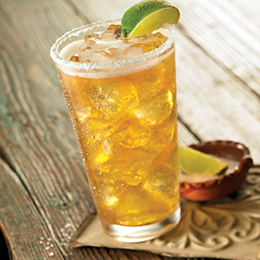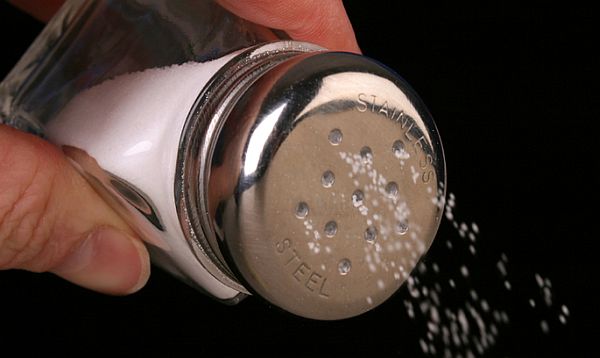Mexico City, Mexico — Salt and lime with tequila. Salt with your "michelada." Salt and chili on fruit and vegetable snacks. Even salt on candy. Mexicans are in love with salt.
Estimates show that Mexicans consume almost three times the recommended daily intake and considerably more than what Americans devour.
When you add in the country's rising obesity and a hypertension epidemic, and you have a potential health epidemic that has propelled Mexico’s capital to try to get residents to steer clear of the salt.
Mexico City Health Secretary Armando Ahued has launched the "Less Salt, More Health," campaign in an effort to raise awareness on the dangers of a high sodium diet.
 |
Ahued and the city’s restaurant chamber signed an agreement to encourage eateries to permanently remove salt shakers from their tables in hopes that the move would reduce the habit people have of salting their food before even tasting it.
The program is voluntary and, if people need salt once they’ve tasted their meal, they need only ask for it. The chamber is urging all of its members to comply but there will be no sanctions against any establishment that does not participate.
So far only a minority of restaurants appear to have joined the campaign, but some are complying, including El Estragon restaurant in the touristy Juarez neighborhood.
"It's for the good of the customers", said manager Isabel Santiago. "We have to look after them. It’s in our own best interest to keep customers alive and eating as long as possible."
According to Secretary Ahued, the World Health Organization recommends a daily consumption of 5 grams of salt per day, but in Mexico the average personal consumption is between 11 and 12 grams.
The consequences of this high sodium intake is that 31 percent of the Mexican population has arterial hypertension, which combined with other diseases such as obesity and diabetes, causes cardiac attacks, strokes, and death.
While fighting the excessive salt consumption battle may appear uphill, Joel Estrada, Chief Cardiologist at the Siglo XXI Medical Center, says that, by removing saltshakers from tables in restaurants and at home, excessive salt consumption could be reduced by a whopping 50 percent.
Part of the Culture
 |
Mexico is a big salt producer, so it is getting it from all sides. Salty snacks and processed foods are being imported into the country from the US since the NAFTA agreement and have grown in popularity. Combined with the country’s own longstanding, home-grown love affair with the combination of lime, chili, and salt — the increases in health problems are evident.
Mexicans’ taste for salt begins at a young age. Children relish in the taste of tamarind or dried mango candy coated with chili powder and salt. Vendors loom just outside of school yards selling potato and banana chips and offering a sprinkle of salt and chili on them. Chamoyada paste and Valentina sauce are put on snacks almost by habit.
For adults, a margarita must have a salted rim, and on a summer day nothings better than a "michelada" with a salt around the glass.
Mexicans like strong flavors and that’s why it’s common to combine lime and salt. The problem is that foods like pizza and ham already have a big dose of salt.
"It is an ancestral problem," says Julian Alcala, a professor of public health at Mexico’s National Autonomous University in Mexico. "There are even Mexican stories about the salt goddess."
The country also holds the disturbing distinction of being the world’s biggest per-capita consumer of soft drinks and repeated campaigns to wean Mexicans off of them have failed.
Officials hope the anti-salt campaign doesn’t go the same way.
Source: The Washington Post


